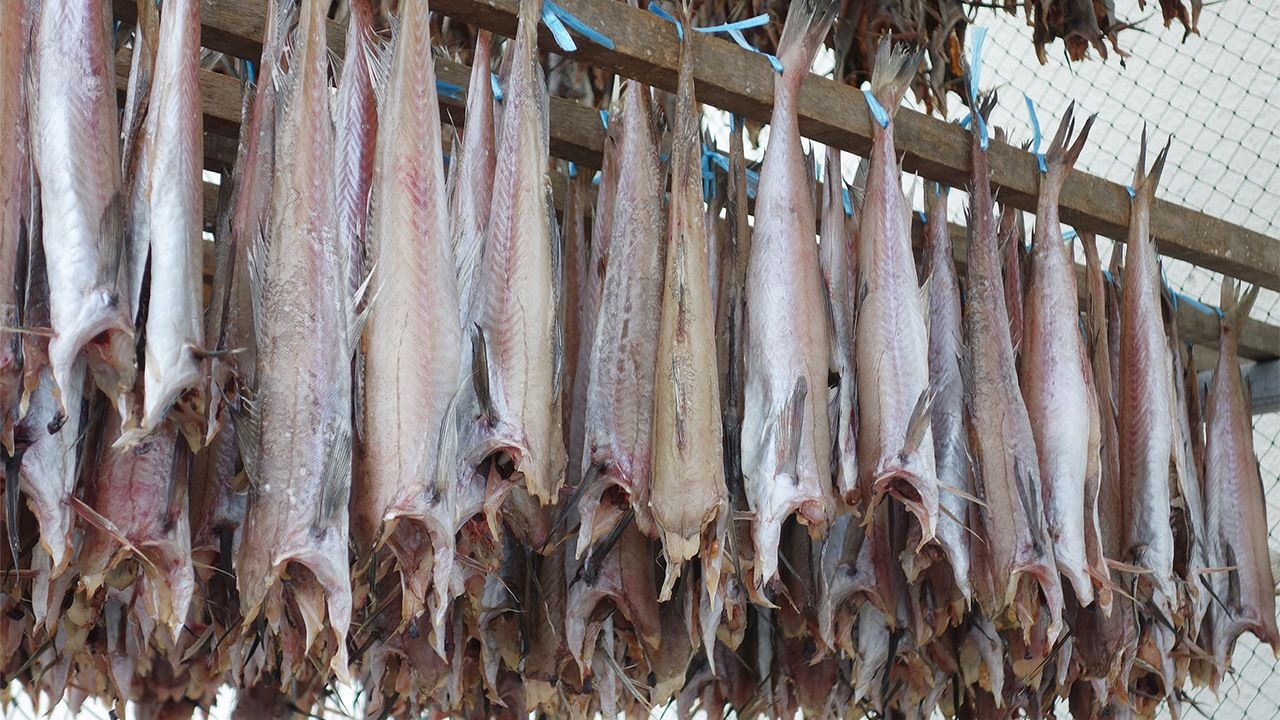
A Journey Through Japanese Haiku
A Fishy Foot Soldier at New Year
Culture Environment Lifestyle- English
- 日本語
- 简体字
- 繁體字
- Français
- Español
- العربية
- Русский
年守や乾鮭の太刀鱈の棒 蕪村
Toshimoru ya / karazake no tachi / tara no bō
Seeing in the New Year—
a dried salmon sword
and cod cudgel(Poem by Buson, written in 1770.)
Toshimoru means to stay awake through Ōmisoka (New Year’s Eve) and greet the New Year. The dried salmon sword derives from a story about the tenth-century monk Zōga Shōnin, who despised fame and fortune. When his master Ryōgen rose in rank, Zōga is said to have strapped on a dried salmon to act as a sword, and led Ryōgen’s ox carriage, riding a skinny ox. His eccentric actions were a form of criticism of his master’s acceptance of worldly honors.
This playful “weapon” is paired with a cod cudgel (tara no bō), a rearrangement of a word for dried codfish (bōdara). Thus, Buson takes a fighting stance, brandishing dried fish traditionally eaten at the New Year period. The poem’s meaning could be represented as, “Let’s properly see out the old year and see in the new. Holding a dried salmon sword and cod cudgel.” The swaggering figure with his useless weapons makes for a humorous image.
In the spring of 1770, Buson succeeded his master and took the gō, or literary name, of Yahantei II. The haiku here includes a sense of determination that he will protect the reputation of this name, while displaying modesty through an expressed lack of strength.
Buson later included the haiku in letters to his followers, jokingly threatening to come and collect borrowed money. In the Edo period (1603–1868), it was customary to buy on credit through the year and pay a lump sum in the summer Obon period and at the end of the year. Debt collectors were unwelcome Ōmisoka visitors, but dried fish weapons would not have intimidated recalcitrant debtors. Even in the hectic year’s end, Buson did not forget his sense of humor.
(Originally published in Japanese. Banner photo © Pixta.)